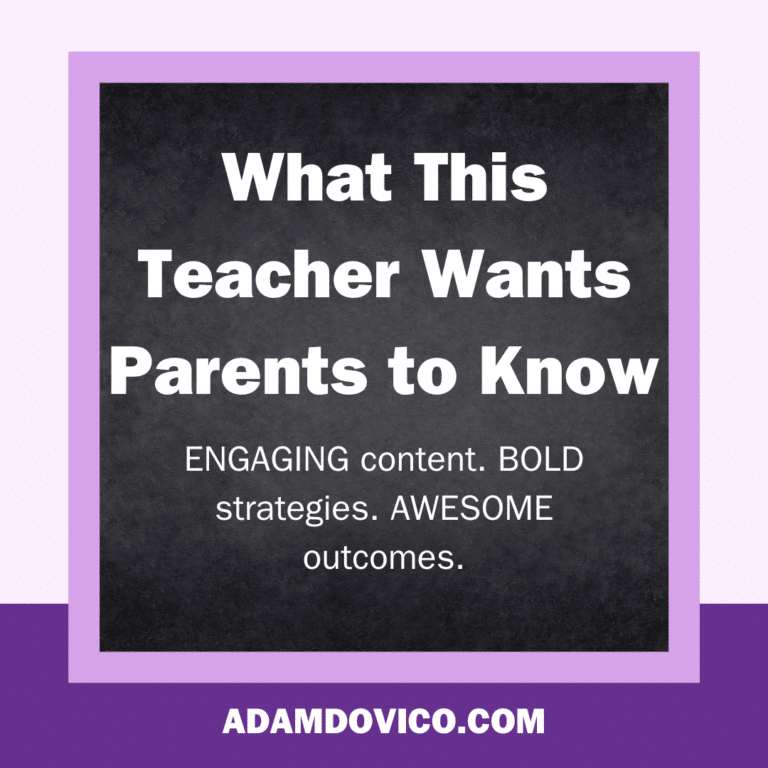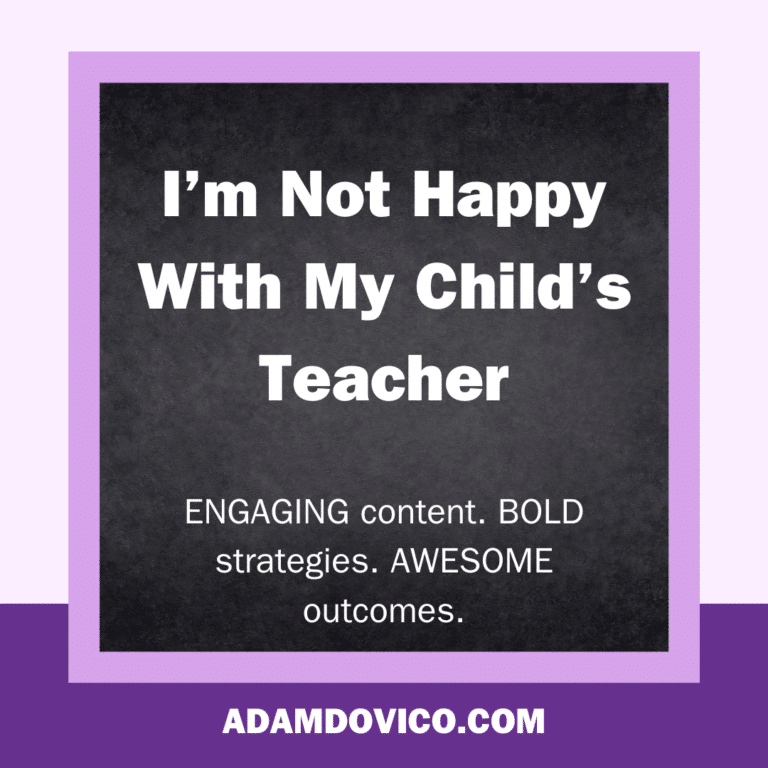It’s Been a While
Where to begin?
Well for starters, it’s been a while since I wrote one of these. 669 days to be precise. I started this blog back in 2012, wrote occasionally on it for a handful of years, and then it became a weekly habit during 2017-2018 as I documented my first year as a principal.
Lots has changed since then. My family moved to a new city, my wife got a dream job, and a thing called COVID-19 changed the entire world as we know it. I also started a doctoral program in Educational Leadership and took a job as a curriculum facilitator at the school my kids go to. Fortunately, I still have the opportunity to present around the country, and even though the pandemic changed the travel part a bit, I was able to do a number of virtual keynotes and presentations.
And there’s some things that haven’t changed at all. I still love bacon, Dr. Pepper, and wearing whacky suits.
I’m not sure what my goals are for kicking this blog back up again, but I do plan on writing about timely issues and random thoughts as they pop up again. I was inspired to write about a topic recently after a Tweet I posted surrounding school leaders trying to make everyone happy and that is not what is best for kids. It is worth a deeper explanation, so here it goes:
First, that Tweet was self-inspired. I like making people happy. I try my best to appease others, especially when it is for someone I care about. I have always had a hard time saying “no” and to some extent that was a personal challenge entering my first year as a principal. The first thing you realize as a school leader is that adults are simply different to work with in comparison to kids. Adults come with more experiences, baggage, responsibilities, and opinions than children, and that inherently makes them more complex.
As a principal, I learned quickly that when a teacher “wanted to talk” there was usually something wrong or there was a need involved. That’s not a bad thing, but it is something that school leaders must be prepared for. I was not at first. I simply assumed that when people came to my office they wanted to just chat, like I did as a classroom teacher. What I realized is that in any given hour, I may receive any number of unrelated inquiries:
1) “I have a vacation scheduled for next week, I will need to take personal days.”
2) “I found this reading curriculum resource from TpT that I really want to get for my classroom and I was hoping the school could buy it.”
3) “This child will not behave and the parent and I think it would be best for them to be in another class.”
As individuals bring these topics to you, as a leader you have to remember that this is the most important thing to them at that moment. For you, it may be nothing but a blip on a radar in your day, but they do not care about that, so you treat each conversation with respect. Some topics naturally are more urgent than others, but the person who brings you these inquiries wants an answer.
Going back to the three examples from above, the easy answers to each of those questions would be:
1) No problem.
2) Sure.
3) Okay.
But when faced with these types of questions, though, what does that say about our commitment to children when we blindly agree to each of these requests without more information? Because here are the deeper questions that could be involved in each of these issues:
1) Did you follow the school/district policy with requesting personal days off ahead of time for approval so that we can properly prepare for a sub or for coverage?
2) What is the resource? Does it align to our curriculum and provide grade appropriate content/instruction for the students? How do you plan on using it?
3) What have you done to build a relationship with the student? Have you worked with administrators or appropriate school personnel to come up with a behavior plan or incentive program? What does your classroom behavior management look like? Who prompted the discussion around changing the classroom between you and the parent?
Naturally, there are many more questions that can be asked within each of these scenarios, but this is a start. What I am getting at is that it would be the easy road to just “say yes” to each of these, because it is the desired response from the adult inquiring. The underlying question that must be asked though is what is best for children? Back to the scenarios:
1) If the teacher asked for these personal days just a day or two ahead of time, it is extremely difficult to find a sub in such short notice. The result is that students may need to be dispersed, which overcrowds another classroom, or you pull an assistant, which means that whoever that assistant was supposed to be working with is now not receiving that instruction. Not only that, but this sets a precedence that you do not need to follow protocol for requesting time off.
2) Do we know if this resource is responsive to the needs of our students? Yes, it may be cute, but does it contain the instructional components that we have asked to contain. If not, our students will be wasting tremendous time learning in a manner that contradicts or creates gaps in our learning sequence.
3) What does it say to the student when they can misbehave and simply go to another teacher? Does that teach the child (or adult) anything about building relationships? It tells the student that this teacher has given up on them and they are now passed to another teacher. It has also told the parent that if they do not like one teacher, they will now be granted another. Again, not a precedence you want to set.
As one of my professors once said about all situations that come across your desk, “it’s murky”. None of these scenarios have a clear cut answer, and “yes” may be the final one, but I encourage school leaders to consider the questions that need to be asked when you come upon the daily inquiries you receive so that we are doing what is best for students.








